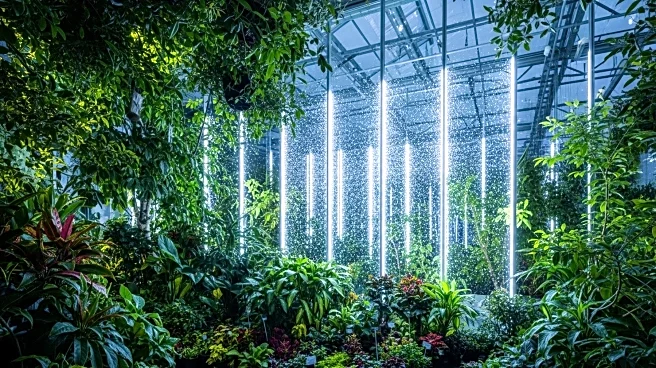What is the story about?
What's Happening?
UbiQD has announced promising results from a USDA-funded study at the University of California, Davis, showcasing the benefits of luminescent quantum dot (QD) laminated glass in greenhouse farming. The study, published in Materials Today Sustainability, demonstrated that QD-glass can significantly boost crop growth, nutrient uptake, and energy efficiency. In a winter lettuce growing cycle, greenhouses equipped with QD-glass showed a 37.8% increase in fresh biomass and improved plant resilience. The glass enhanced light-use efficiency by 41% and optimized the red-to-blue light ratio, improving photosynthesis and nutrient absorption.
Why It's Important?
The introduction of quantum dot glass in agriculture represents a significant advancement in sustainable farming practices. By increasing crop yields and improving energy efficiency, this technology addresses critical challenges such as climate change, resource scarcity, and growing food demand. It offers a viable solution for year-round production, particularly in regions with limited energy resources. The enhanced nutritional quality of crops could also benefit consumers and contribute to food security. This innovation aligns with global efforts to develop climate-smart agricultural systems.
What's Next?
The successful implementation of quantum dot glass in greenhouses could lead to broader adoption of this technology in the agricultural sector. Farmers may consider integrating QD-glass to boost productivity and sustainability. Further research and development could expand its application to other crops and environments. As the technology gains traction, it may attract investment and support from policymakers aiming to promote sustainable agriculture. The potential for international collaboration in deploying this technology could also emerge, enhancing global food security efforts.

















